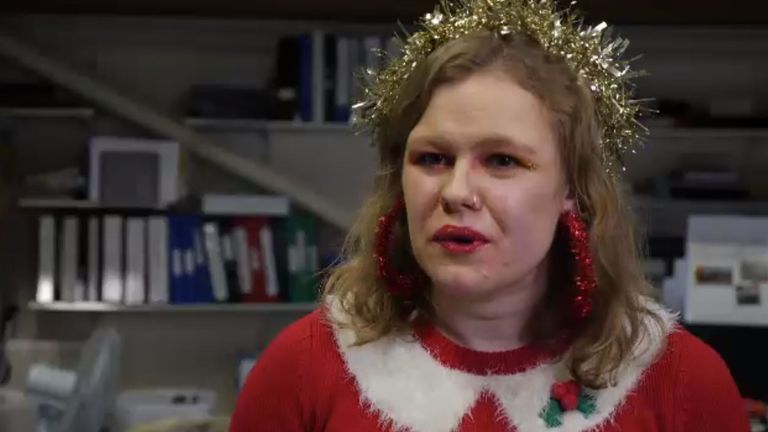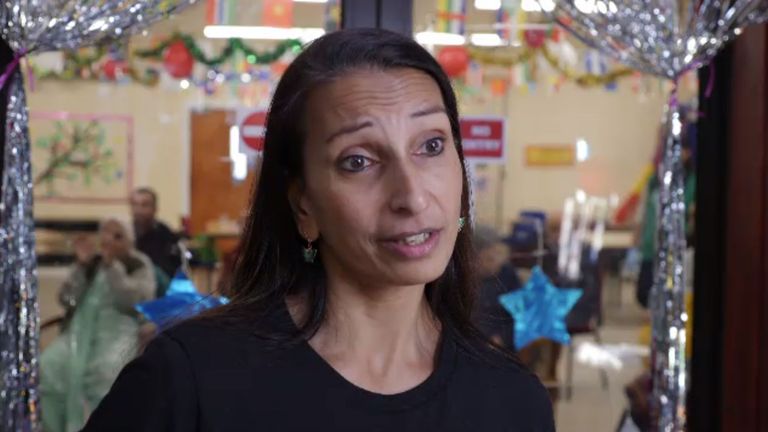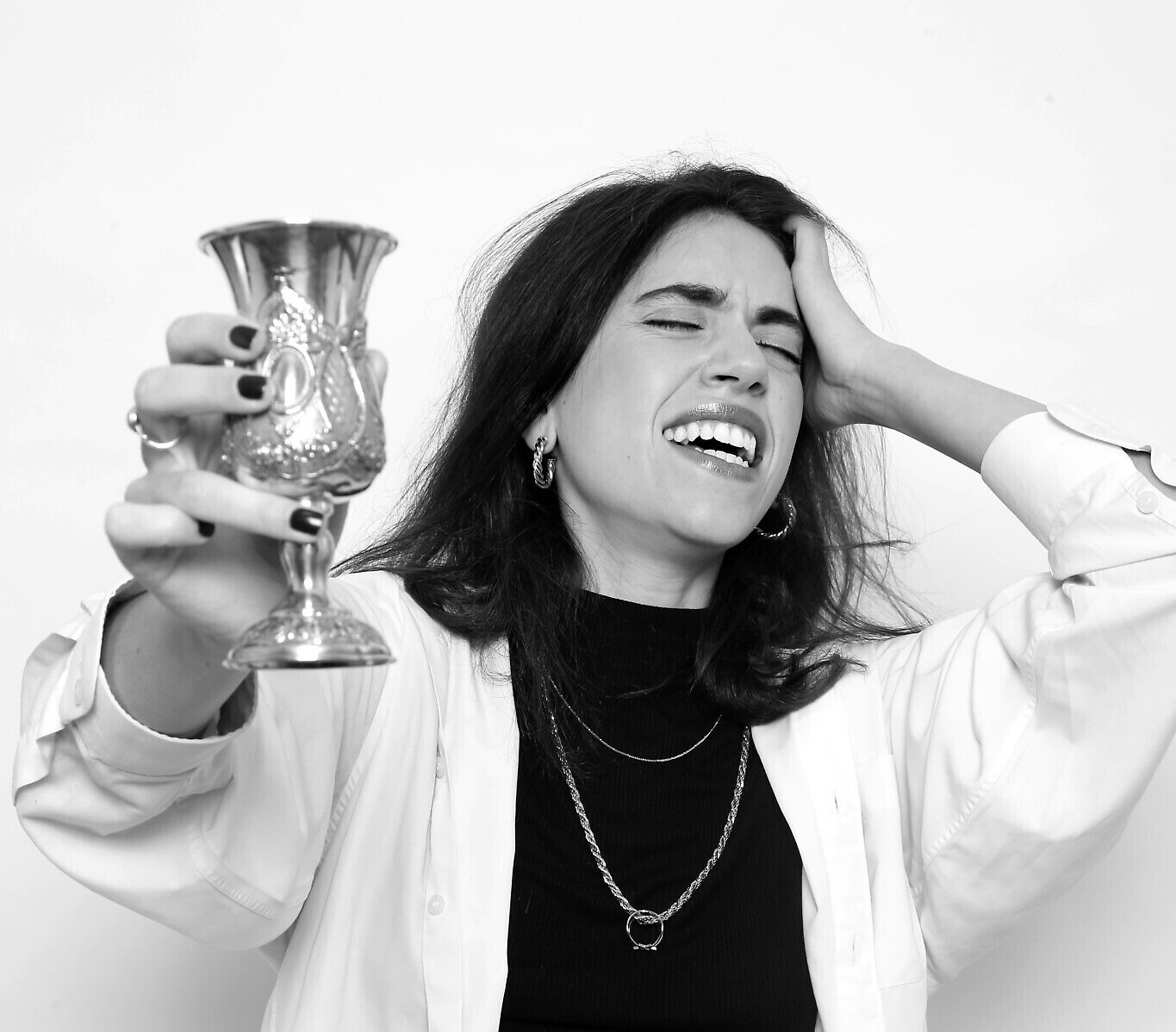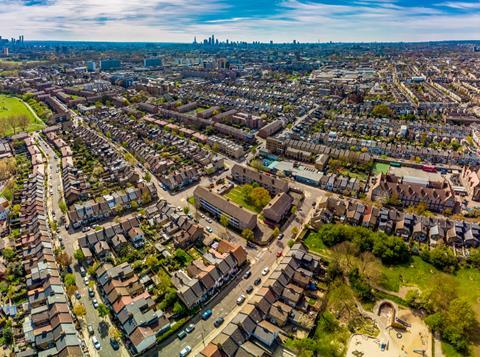Professionals offering dance and fitness classes to disabled people need to be more “inclusive and welcoming”, an expert has said.
Every week, for those attending a day centre run by the Asian People’s Disability Alliance in north London, Bollywood dance classes are on the agenda.
The group was formed at the start of the year, they have since worked tirelessly, putting on their first performance at the Active Westminster Awards.
Rekha Mehta is one of the dancers who regularly attends.
Ms Metha became a wheelchair user after contracting polio which left long-term adverse effects on her health.
For her, these classes are revitalising.
She told Sky News that put simply, “they changed my life”.
She said: “I get more cheerful, it gives me exercise, and I meet some other people as well.”
Ms Mehta has enjoyed dancing since childhood, crediting it with helping her through depression after she contracted polio.
She said: “In my mind I get peace.
“I forget who is around me, I never see that, I am with the music, I feel it in my body.
“We forget everything, what we have, disability and things, we forget totally.”
Image:
Rekha Metha became a wheelchair user after contracting polio which left long-term adverse effects on her health
Dancing ‘makes me feel’
Just like Ms Mehta, these classes are also incredibly important to Yogesh Patel.
He told Sky News that dancing “makes me feel, it’s something that I shall never forget”.
“It’s something everybody loves to do, it is absolutely nice to dance a lot,” he added.
These sentiments are shared by everyone in the group – dancing with the music feels therapeutic.

Image:
Yogesh Patel says dancing ‘makes me feel, it’s something that I shall never forget’
Music’s impact on those with dementia
Class teachers have especially noticed the visible impact on those with dementia.
Instructor Georgia Cornwell told Sky News: “Music is such a big thing for them, because I think it brings back a lot of memories.
“As soon as that music comes on, sometimes they’re not really engaged but then if a song comes on and something ignites that spark they’re singing, they’re dancing.
“So those nostalgic songs are such a big thing for them.”

Image:
Dance instructor Georgia Cornwell
Dr Rashmi Becker MBE, founder of Step Change Studios, is behind this programme.
She came up with the idea during the pandemic, aware that those with disabilities and those from South Asian backgrounds were disproportionately affected.
Since then there has been huge success across London, meaning the programme will be replicated in Birmingham.

Image:
Dr Rashmi Becker
Some way to go to improve inclusivity
Dr Becker told Sky News there is some way to go to improve inclusivity within dance and fitness activities currently on offer for older people with disabilities.
She said: “It’s really important to have more investment in making places and spaces more inclusive so people can be able to deliver more accessible classes for everyone.”
For now, Dr Becker and her team are working to bridge the gap.
“A key thing we’re doing is working with local providers, so other South Asian dance companies, and other people in dance and fitness, to upskill them so they can adapt and be more inclusive, so they can deliver them programmes themselves,” she added.
“Ideally it would be great to get to a stage where you don’t need specialist companies like mine because more places are just inclusive and welcoming.”
https://news.google.com/__i/rss/rd/articles/CBMieWh0dHBzOi8vbmV3cy5za3kuY29tL3N0b3J5L2RhbmNlLWFuZC1maXRuZXNzLWNsYXNzZXMtZm9yLWRpc2FibGVkLXBlb3BsZS1uZWVkLXRvLWJlLW1vcmUtaW5jbHVzaXZlLWFuZC13ZWxjb21pbmctMTI3NzI4OTbSAX1odHRwczovL25ld3Muc2t5LmNvbS9zdG9yeS9hbXAvZGFuY2UtYW5kLWZpdG5lc3MtY2xhc3Nlcy1mb3ItZGlzYWJsZWQtcGVvcGxlLW5lZWQtdG8tYmUtbW9yZS1pbmNsdXNpdmUtYW5kLXdlbGNvbWluZy0xMjc3Mjg5Ng?oc=5




